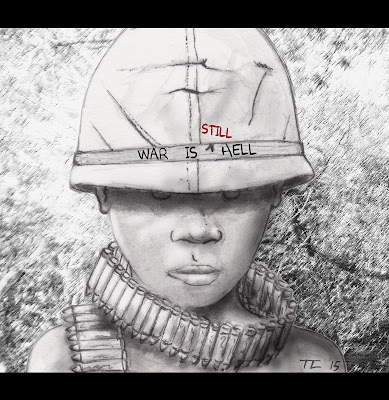
A part of me loves lists. Ask me what my all-time top ten is and my mind immediately goes to John Cusack in 'High Fidelity', doing his best to round out yet another decidedly niche top five list. He slaves over each choice, making sure it doesn't let down the whole. A perfect (or seemingly perfect) list has a sense of completism about it - which is ironic since you have to rule so much out to create it. Creating something that has a definitive quality requires some graft, but, in the end, it looks all so satisfying.
There's another part of me that will have no truck with lists. How you feel about a film can change. And even the most devout cinephile can find a film has passed them by. So how could the list ever be definitive?
This is the first year in awhile that I've caught enough of the big hitters to be able to take a relatively decent punt at what I'd have in my list, and the 'High Fidelity' instinct is hard to subdue, so here goes; just bear in mind my umpteen reservations about the matter:
Top Ten (counting down, in time-honoured fashion):
10.
It Follows
Death personified, relentlessly stalking teenagers (albeit at a nice and leisurely pace), and literally doing it because of the teens promiscuity, is both a new and a very smart spin on an old trope.
9.
Wild Tales
Argentinian short film anthology. Not all of the shorts hit home, and some of them fit ill into the film's theme of violence and vengeance, but its opening and closing tales are worth the time spent all on their own.
8.
Mistress America
Previously I've found Noah Baumbach a tad trying. His films have, on more than one occasion, projected a smugness that makes them hard to warm to. But with 'Mistress America' he balances it with strong (and even warm) characterisation, and by producing his funniest script so far; no doubt helped by his co-writer and star Greta Gerwig.
7.
Song of the Sea
Much as liked 'Inside Out', it's Tomm Moore's 'Song of the Sea' that snuck into a nook in my head and refused to leave. The attention to detail in the drawings, the stunning soundtrack, and the perfectly cast voice actors makes the whole thing feel so lived and charming that it's heartbreaking that so few have seen it yet.
6.
Amy
I don't tend to cry at films. I don't tend to cry full stop. But Asif Kapadia's documentary on Amy Winehouse had me in tears of indignant anger almost throughout. It's a fascinating documentary that shows how the media were almost as culpable for what happened to Winehouse as her nearest and dearest were. If you don't leave the film red-eyed and fuming then it's possible you're broken inside.
5.
Steve Jobs
I was predestined to like this one. Michael Fassbender, Kate Winslet, Danny Boyle and Aaron Sorkin: what's not to like? It's smart, witty and surprisingly thrilling for a film that's ostensibly about three product launches. Probably the most quotable film of the year.
4.
A Most Violent Year
J.C. Chandor deconstructs the myth of the American dream. Admittedly if that were the logline then it'd explain why so few saw the film, so let me try again: the film is tense, gripping and immaculately acted - and contains one of my favourite soundtracks of 2015.
3.
Mad Max: Fury Road
George Miller's return to the post-apocalyptic world of Mad Max is more of a rollercoaster ride (in similar fashion to 'Gravity') than it is a film, but it's a hell of a ride all the same.
2.
Sicario
I can't fault 'Sicario'. The editing, cinematography and soundtrack come together to make one of the most relentlessly tense films I've ever seen.
1.
Whiplash
I may be biased about this one, as it chimes so strongly with my view on the (necessary) relentless dedication needed to truly excel at something, but I found it so perfectly encapsulated the sacrifices you have to make, whilst also detailing the problems inherent in that mindset, that no other film was ever going to touch it.
Outliers that I couldn't quite crowbar in:
Of the indie movies: 'Coherence', 'The Signal', 'The Falling', 'Digging For Fire'; of the award-noteworthies: 'Ex Machina', 'American Sniper', 'Girlhood', 'Still Alice', 'Mommy', 'Going Clear'; of Hollywood's output: 'Inside Out', 'Danny Collins', 'Top Five' and 'Mission Impossible: Rogue Nation'.
Films that got an unfair drubbing:
'Focus' - fun and light, with an equal opportunities approach to sexual objectification. 'The Man From U.N.C.L.E.' - ditto.
Films everyone else seems to like, but, really, why??:
'Spotlight' - fails to pack a punch despite its subject matter. Mark Ruffalo's overacting doesn't help. 'Birdman' - Best film that seems like a play that didn't quite manage the transition to film - and probably ought to actually be a play.
Best non-2015 film I saw this year:
'The Broken Circle Breakdown'
Film that may have finally ended a career:
'Aloha'. Tellingly, Cameron Crowe's next film is a TV movie. (The sketch up top, which plays off of 'Say Anything', is my sort of In-Memoriam-of-the-Career-That-Was.)
And For Full Disclosure, here are the 2015 noteworthies that I have yet to catch:
'While We're Young', '
A Pigeon Sat on a Branch Reflecting on Existence', 'Hard to be a God', 'Eden', 'White God', 'The Lobster', 'Love is Strange', 'Macbeth', 'Bridge of Spies' (which I'm watching tonight), 'Carol', and 'The Look of Silence' (and I also need to track down the preceding documentary: 'The Act of Killing'). Maybe the list will change, maybe not.
Let me know what you thought were the best of the year, and which should have made the cut, in the comments section below.




